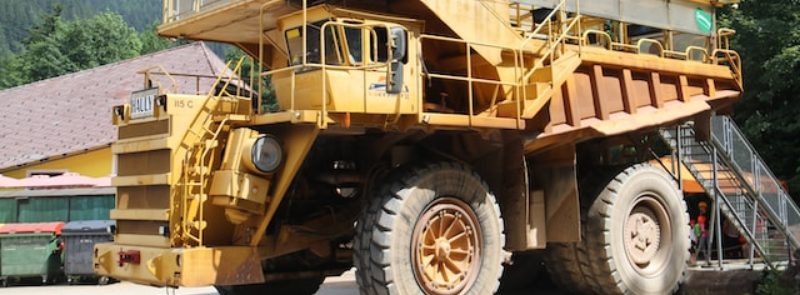
When It Occurs
Every April 4th
Official Website
Timeline
Days Passed (1055)
# Hashtags
#InternationalDayForMineAwarenessAndAssistanceInMineAction #PerilsOfLandmines
The International Day for Mine Awareness and Assistance in Mine Action is annually observed on April 4. Established by the United Nations General Assembly in 2005, the day serves to raise awareness about the perils of landmines and promote efforts to eradicate them.
This day contributes to programs in 20 countries affected by mines, including Bosnia and Herzegovina, Ukraine, Syria, Lebanon, Libya, Burkina Faso, Somalia, and Sri Lanka. The United Nations Inter-Agency Coordination Group on Mine Action (IACG-MA), composed of 12 departments, agencies, funds, and programs, along with observer entities like the World Bank and the United Nations Institute for Disarmament Research, guides the inter-agency policy for the day.
The United Nations encourages people to take action on this day to eliminate the threat of mines, support communities in their recovery, and assist individuals in returning to safety and security.
Origins and History
- Established by: The United Nations General Assembly.
- Resolution: Adopted on December 8, 2005.
- First Observed: April 4, 2006.
- Purpose: To raise awareness about landmines and explosive remnants of war, and to promote mine action work.
Significance
- Raising Awareness: Highlighting the dangers posed by landmines and the efforts needed to clear them.
- Supporting Victims: Promoting assistance and rehabilitation services for landmine survivors.
- Advocacy for Mine Action: Encouraging governments and organizations to commit to mine clearance, victim assistance, and mine risk education.
- Global Solidarity: Demonstrating international solidarity and support for mine-affected communities.
Key Messages
- Danger of Landmines: Emphasizing the continued threat posed by landmines and explosive remnants of war to civilians, especially in conflict-affected areas.
- Importance of Mine Action: Highlighting the crucial work of mine action organizations in clearing mines, providing risk education, and assisting victims.
- Support for Survivors: Advocating for comprehensive support services for landmine survivors, including medical care, rehabilitation, and socio-economic reintegration.
- Global Cooperation: Encouraging international cooperation and funding for mine action programs.
Typical Activities
- Educational Campaigns: Conducting public awareness campaigns to inform people about the dangers of landmines and the importance of mine action.
- Community Events: Organizing events such as exhibitions, panel discussions, and workshops to engage communities and policymakers.
- Commemorative Ceremonies: Holding ceremonies to honor the victims of landmines and recognize the efforts of mine action workers.
- Media Outreach: Utilizing media platforms to share stories of landmine survivors and the impact of mine action work.
- Fundraising and Advocacy: Initiating fundraising activities to support mine action programs and advocacy efforts to influence policy change.
Global Observances
- United Nations: The UN and its agencies, such as the United Nations Mine Action Service (UNMAS), lead global observances with events and campaigns.
- Non-Governmental Organizations (NGOs): NGOs involved in mine action, such as the Halo Trust, Mines Advisory Group (MAG), and Handicap International, organize awareness and fundraising events.
- Governments: National governments participate in observances through official statements, ceremonies, and support for mine action initiatives.
- Local Communities: Mine-affected communities hold local events to raise awareness and commemorate victims.
Organizations Involved in Mine Action
- United Nations Mine Action Service (UNMAS): Coordinates UN mine action efforts, provides technical assistance, and supports national mine action programs.
- The Halo Trust: An international NGO specializing in mine clearance and explosive ordnance disposal.
- Mines Advisory Group (MAG): An NGO dedicated to clearing landmines and unexploded ordnance to help communities live safely.
- Handicap International: Works on mine clearance, risk education, and rehabilitation services for survivors.
- International Campaign to Ban Landmines (ICBL): A global network advocating for a ban on landmines and supporting mine action efforts.
Challenges in Mine Action
- Funding and Resources: Sustained funding and resources are crucial for ongoing mine clearance and victim assistance programs.
- Access to Affected Areas: Political instability and security concerns can hinder access to mine-affected regions.
- Technological and Logistical Constraints: Mine clearance requires specialized equipment and trained personnel, which can be challenging to obtain and maintain.
- Long-Term Support for Survivors: Ensuring comprehensive and ongoing support for landmine survivors, including physical rehabilitation and economic reintegration, is essential but challenging.
Conclusion
The International Day for Mine Awareness and Assistance in Mine Action is a vital observance that draws attention to the dangers of landmines and the efforts required to eliminate them. Through educational campaigns, community events, and global cooperation, this day seeks to promote mine action work, support survivors, and advocate for a mine-free world. By recognizing the efforts of organizations and individuals dedicated to mine action, the international community can work together to ensure safer environments for all.


